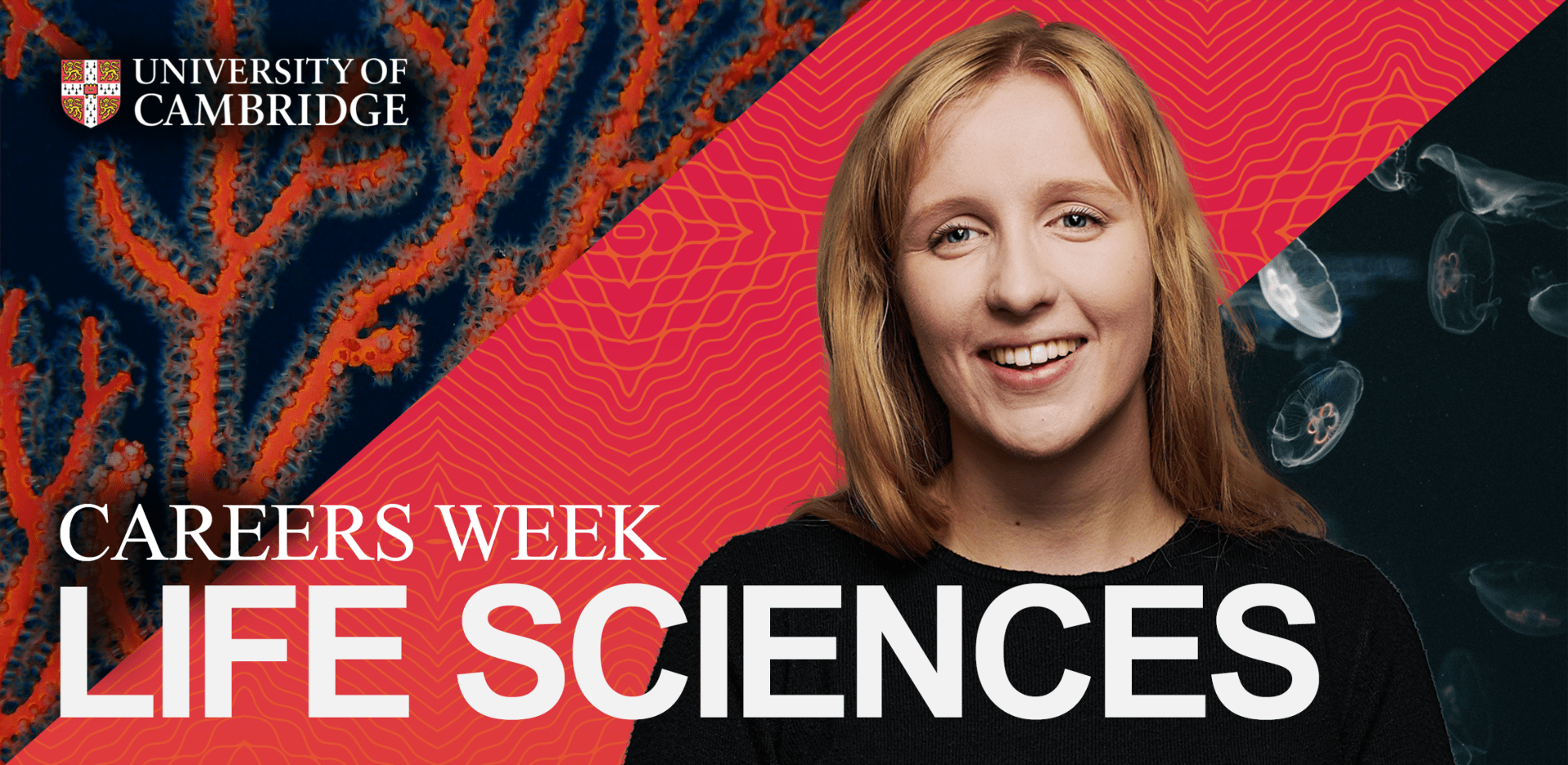Lucy Romijn, Careers Consultant, reflects on our recent life sciences careers week and how students and researchers can use their subject knowledge, transferable skills & enthusiasm for a whole host of life science organisations and roles
big pharma companies aren’t your only option for a career in life science research!
Thinking about research in the life sciences industries?
When you think of a career in life sciences, big pharma companies are often what springs to mind. There’s lots of great opportunities within them from internships to grad schemes, industrial postdocs and a wealth of scientific roles from the wet lab to the quantitative bioinformatics, statistics and data science, early stage work through to drug discovery and working on therapies or products that are in the clinical trials process. But, big pharma companies aren’t your only option for a career in life science research!
Our panellists and companies attending the careers fair represented the variety available in the life sciences sector, including start-ups and medium-sized organisations covering contract research organisations, pharmaceuticals, biotechnology, plant sciences, agritech, healthcare, and much more. It’s worth exploring who does the research work you’re interested in, if you’re an epidemiologist then the UK Health Security Agency might fit the bill, automation science might mean a smaller biotech is up your street.
You don’t need a PhD to do research in industry…
Our undergraduate and Master’s alumni have forged careers in government organisations, big pharma and smaller biotech companies. Many organisations do value a PhD, and it may help your career progression in some areas of industry research, but if you aren’t sure about a PhD it’s okay to get some industry experience then come back if you want to or need to
If you have a PhD or postdoc experience, there’s plenty of opportunities for you to move into industry and your research experience is highly valued. Job titles aren’t standard so check out our blog on understanding the right job title for you to help navigate the options, you also have the options of postdocs in industry if you’d like to give industry a try while maintaining your links to academic research. Hear from former PhDs and postdocs who’ve made the move on our blog and in our Biotech and Pharma playlist.
Exploring roles beyond research?
The Association of the British Pharmaceutical Industry estimates that around 60% of the pharmaceutical sector aren’t working in research roles. You can find a range of case studies on the ABPI careers pages.
Think about what motivates you in your research or current studies. This can help you consider what kind of work you’d like to do, for example our panellists had enjoyed writing or managing projects and this directly influenced their decision about the roles they gravitated towards.
Our panellists commented on the value of LinkedIn to understand options. They looked at the background of people doing the jobs they were interested in, contacted people to get advice and used it to source opportunities.
Those working outside of research all commented on the freedom to try things out and pivot your career if you decide you’d like to do something different. Many of the jobs provide you with transferable skills and experience.
It’s a broad industry, but no matter your interest in Life Sciences, recruiters are mostly in agreement…
It’s okay to make speculative approaches to organisations you’re interested in but if you really want a specific job you need to apply for it.
Most organisations are open to people proactively getting in touch and will hold CVs on file, but it’s not guaranteed that hiring managers will rifle through them when they have a vacancy. If you do speculatively approach an organisation, keep them updated so they know you’re still interested and available. If you see a job you like, even if you’ve applied before, make sure you make a direct application as that way you know your application is going to the right person and will be considered.
Whether technical or transferable, recruiters want to understand how you’ve used your skills. A generic list on your CV isn’t as impactful as giving context so they understand your level of experience.
Cover letters are key to help recruiters understand what’s shaped your motivation to move into industry. You’ll all have different motivations so make it personal to you, be positive about why you want to work in industry and what’s attracted you to the role.
Finally, recruiters were keen to highlight that they aren’t looking for someone who ticks every box on a job ad, they’re aware that almost all candidates will need some training upon starting the role. In the recruitment process they’re looking for your potential to do the job, so don’t worry if you get something wrong in a technical task during the recruitment process, recognising your mistake and identifying what you might have done differently are often just as valued as doing a perfect job!
The main take away from the events is that the life sciences sector is an exciting place to work, whether you’re just starting your career or looking to make a shift from academia. Taking the time to explore what’s out there and what might be right for you is worth doing when there’s such a breadth of opportunity.

